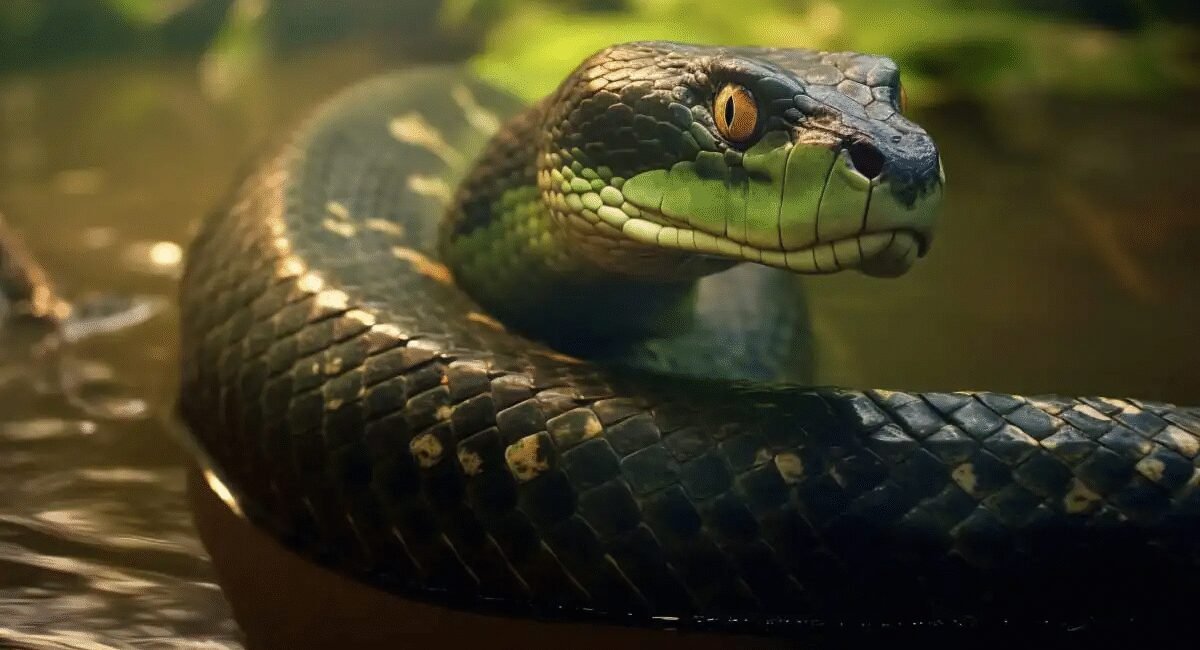
“Sapne me kala saap dekhna“ (seeing a black snake in dreams) is among the most potent and enigmatic experiences reported across cultures. These slithering apparitions evoke primal emotions—fear, fascination, or awe—and carry layered symbolism rooted in psychology, mythology, and spirituality. Below, we unravel the profound meanings behind this vivid dream archetype, exploring its implications for your subconscious, personal growth, and waking life.
1. The Primal Symbolism of Snakes
Snakes universally represent:
- Transformation and Rebirth: Shedding skin symbolizes renewal, echoing cycles of death and regeneration (e.g., Ouroboros in alchemy).
- Hidden Knowledge: As creatures of the earth, they bridge the conscious and unconscious, often embodying intuition or suppressed truths.
- Dualities: Healing (Rod of Asclepius) vs. danger (Biblical serpent); creation (Hindu Kundalini) vs. chaos (Norse Midgard Serpent).
The black hue intensifies these themes, adding:
- Mystery, the unknown, or shadow self (Jungian psychology).
- Power, protection, or ancestral wisdom (West African traditions).
- Fear, grief, or unresolved trauma (modern dream analysis).
2. Psychological Interpretations
Freudian Perspective
Black snakes may symbolize:
- Repressed desires or fears, particularly around sexuality (phallic imagery).
- Anxiety about betrayal, hidden threats, or toxic relationships.
Jungian Archetypes
- The Shadow: The snake embodies unacknowledged traits—anger, envy, or creativity—urging integration.
- Collective Unconscious: A universal motif signaling transformation or spiritual awakening.
Example: Dreaming of a passive black snake could reflect internalized stress, while an aggressive one might warn of external conflicts.
3. Cultural and Spiritual Meanings
| Culture/Tradition | Interpretation of Black Snake Dreams |
| Ancient Egypt | Protection (Wadjet cobra); connection to underworld deities. |
| Hinduism | Kundalini energy awakening—spiritual ascension via the spine. |
| Native American | Healing, rain, or ancestral messages (e.g., Hopi snake dances). |
| Christianity | Temptation, evil, or moral trials (Genesis serpent). |
| African Diaspora | Ancestral spirits (Vodou) or divine wisdom (Yoruba). |
4. Common Dream Scenarios & Their Meanings
- Being Chased: Avoidance of a looming problem (e.g., health issue, financial stress).
- Bitten or Attacked: Fear of betrayal or feeling “poisoned” by guilt/regret.
- Killing the Snake: Overcoming adversity or reclaiming control.
- Peaceful Coexistence: Harmony with your shadow self; acceptance of life’s dualities.
5. Personal Context: Key Questions to Ask
Your dream’s meaning hinges on:
- Emotions During the Dream: Fear suggests unprocessed trauma; curiosity signals readiness for growth.
- Life Circumstances: Career changes, relationship struggles, or health concerns often manifest symbolically.
- Recurrence: Frequent dreams indicate urgent unresolved issues.
6. Transforming Fear into Empowerment
A black snake dream need not portend doom. Instead, view it as an invitation to:
- Confront Shadows: Journal about fears or seek therapy to address hidden wounds.
- Embrace Change: Recognize transitions (e.g., new job, relationship) as opportunities for rebirth.
- Tap into Intuition: Meditate or practice mindfulness to decode subconscious messages.
7. Conclusion: The Alchemy of Darkness
Black snakes in dreams are mirrors to our deepest selves—guardians of the psyche that challenge us to evolve. Whether interpreted as omens, psychological signals, or spiritual guides, they remind us that darkness precedes dawn. By facing these symbols with courage, we transmute fear into wisdom, emerging more integrated and resilient.


